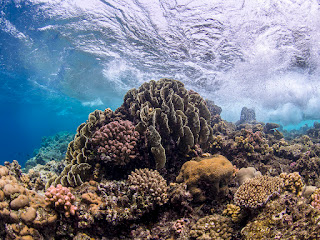🌊 Marine Treasures: Coral-Derived Molecules May Fight Harmful Bacteria
🧬 Nature’s Antibiotics from the Ocean Depths
A team of marine biologists and chemists has recently discovered promising antibacterial compounds derived from coral-associated microorganisms. These molecules show strong potential in fighting antibiotic-resistant bacteria — a major global health threat.
Researchers from the Scripps Institution of Oceanography and the University of Utah isolated these natural compounds from soft corals found in the Pacific Ocean. The molecules, called "actinimycins", demonstrated impressive antimicrobial activity during lab tests against MRSA and other drug-resistant pathogens.
This breakthrough may open the door to developing a new class of antibiotics, urgently needed in a world where superbugs are becoming increasingly resistant to existing treatments.
“The ocean remains one of the richest, yet least explored, sources of bioactive compounds,” said Dr. Julia Martell, lead scientist of the study. “Our findings highlight the importance of coral reef conservation, not just for biodiversity, but also for human health.”
🌐 Why It Matters
Antibiotic resistance causes over 1.2 million deaths globally each year.
The marine environment holds untapped chemical diversity with therapeutic potential.
Coral reefs are not only ecological treasures but could also be key players in the future of medicine.
🌱 Conclusion
Protecting our oceans is no longer just about saving marine life — it could also mean saving human lives. Continued research into coral-derived compounds may lead to life-saving antibiotics and reinforce the need for ocean conservation efforts.
Source:
Scripps Institution of Oceanography, University of Utah — Published study in Nature Chemical Biology, June 2025.




Comments
Post a Comment